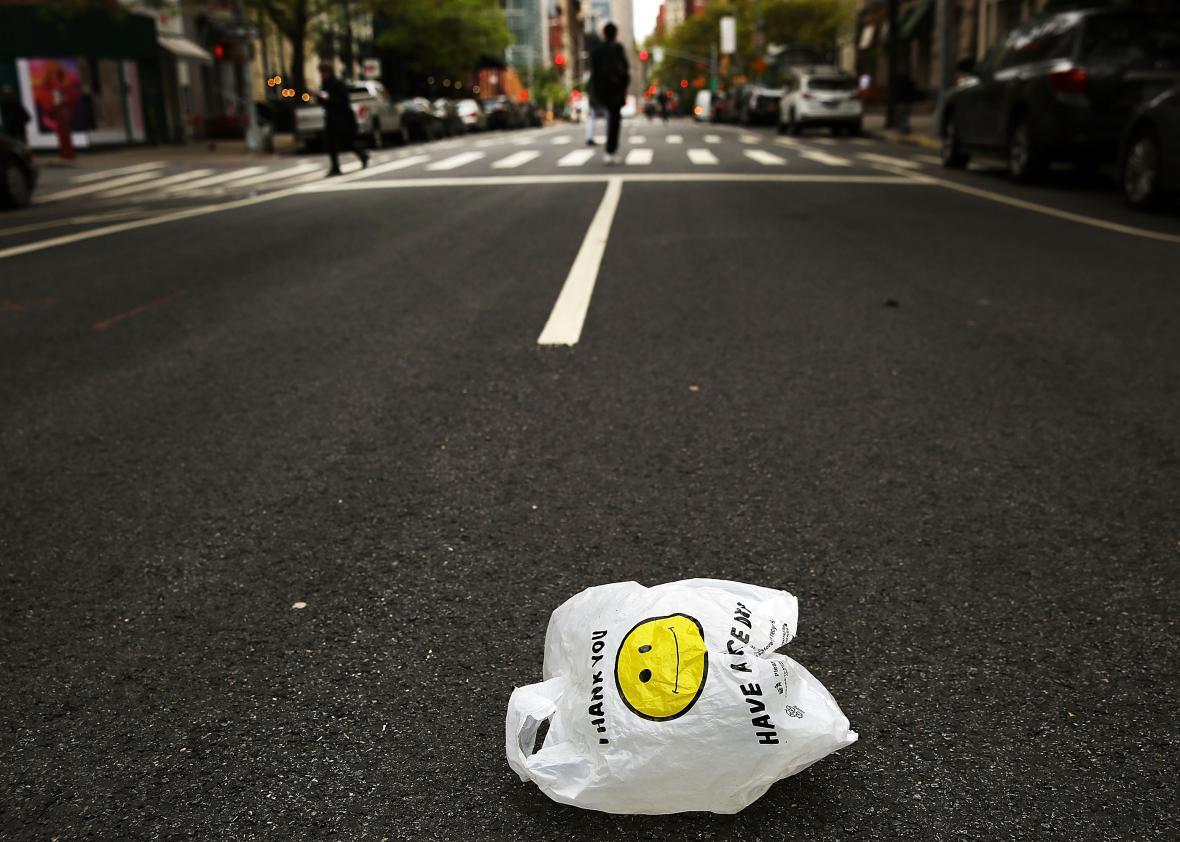First came the cities with their bag bans; then came the states with their bag-ban bans.
In May, the New York City Council approved a five-cent fee on plastic bags. On Tuesday, after the state Senate voted to ban bag bans, the nation’s largest city was ready to redraft the law in consultation with leaders in Albany.
New York City, which uses about 10,000 plastic bags a minute, is accustomed to having municipal decisions about zoning, schooling, transportation, and housing sent down the Hudson River from the state capital. That the law to stamp out local control over plastic bags was sponsored by two legislators from Brooklyn and Staten Island is only a small turn in the narrative.
In this case, though, New York is just the latest city to suffer the hottest new trend in state government. Last April, Arizona Gov. Doug Ducey signed a law that prohibits Arizona municipalities from regulating the “sale, use, or disposition of auxiliary containers.” At the time, only one city in Arizona—tiny Bisbee, population 5,360—had passed a plastic bag law.
Idaho Gov. Butch Otter signed a similar law in March, a forward-looking move, considering none of the state’s cities has any plastic bag regulations in the works. Indiana Gov. Mike Pence did the same. So did Wisconsin Gov. Scott Walker.
For cities, states like California, Hawaii, and Massachusetts, and even some countries, like Ireland and China, banning cheap, disposable plastic bags has been viewed as a simple solution to a nagging environmental hazard. Opponents of the bans say they are anti-business, depress economic activity, and hurt the poor.
What explains this spring’s state-level rush to pre-empt municipal bag bans, when such laws have been in effect for almost a decade in cities like San Francisco? Well, incidentally, the ultra-conservative American Legislative Exchange Council, or ALEC—the group responsible for the spread of “Stand Your Ground” laws, among others—anointed the state bag-ban ban as a piece of “model policy” in the summer of 2015.
“The free market is the best arbiter of the container,” the ALEC model resolution states. (The free market has yet to solve the Great Pacific Garbage Patch, unfortunately, but we’ll keep following this story.)
And so, just as a ban or fee on plastic-bag distribution has become a badge of progressivism in liberal cities like Seattle and Austin, Texas, state laws prohibiting cities from regulating bag use are suddenly now de rigeur in conservative legislatures. A similar pattern has played out around local laws governing ride-hailing companies Uber and Lyft, which have been subverted by state legislation. Charlotte, North Carolina’s trans-friendly bathroom policy is another example of a blue-city law quickly overturned by conservative statehouses.
Ironically, many of the GOP pols who have tried to subvert local control over regulations are the same ones complaining about top-down governance from Washington. Gov. Walker, for example, told a meeting of conservative lawmakers last July that, “When you send power back to the local level, the level closest to the people is generally best.” Emphasis on generally. In March, Walker signed the bill prohibiting Wisconsin cities from making their own laws about plastic bags.
